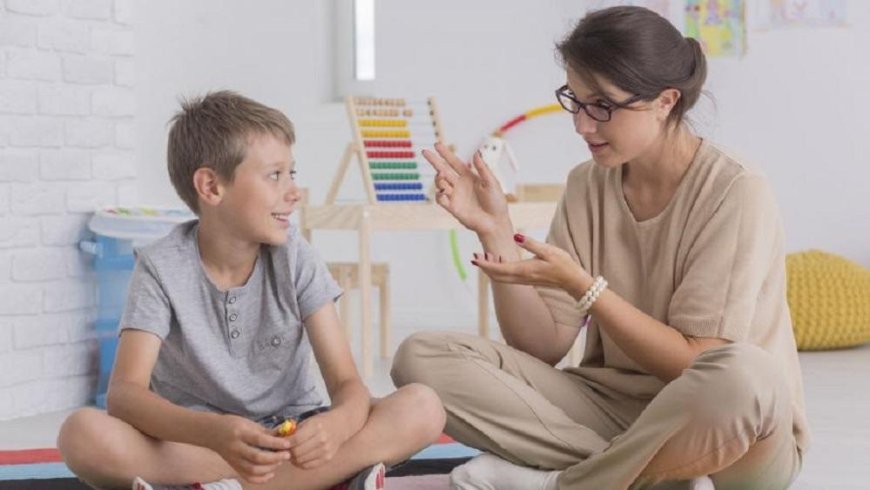What™s at the Psychologist School
The problem gets even bigger when it comes to distinguishing between a school psychologist and an educator. I can venture to say

There are people who find it difficult to distinguish a psychologist from a psychiatrist. The problem gets even bigger when it comes to distinguishing between a school psychologist and an educator. I can venture to say that many school principals have difficulty fully understanding the difference in their responsibilities. There is a psychologist in almost every school. And surely every school of psychology would like to have one. But what for? What does a psychologist do and why is he so needed?
What does the school psychologist do? Mostly talking or doing tests. And when it comes to research, the matter is obvious. It measures the level of intelligence to help the teacher adjust the level of education to the child's current abilities. He checks for educational difficulties and directs the student and his parents for research to specialized institutions.
The matter is more complicated with explaining "talking". After all, everyone talks: teachers, students, parents. So what is the specificity of talking to a psychologist?
From my experience, I can mention some of the most common questions, problems and situations that young people tell me about and work on. These will be: stress, difficulties in learning or organizing work time and reconciling it with one's hobby, difficulties in relations with peers, lack of motivation, experienced anger and frustration. The most common topics for every child and teenager.
Can't the teacher talk about it? Of course he can. Everyone can talk. So what is the difference between a student's conversation with a psychologist and a conversation with a teacher? What is specific about talking to a psychologist?
Psychologists gain knowledge not only about the functioning of the human psyche and the way a person functions, but also learn how to use the tools of word and speech to stimulate reflection, modify their behavior in the desired way and achieve their goals. The psychologist's task is to help you look at the topic in a different way.
Must Read: Heartburn after eating causes and prompt treatment
The school psychologist has time to talk about these topics that are as important as the learning process itself. The teacher often does not have this time.
There are also matters beyond the aforementioned questions and difficulties for which the teacher is not prepared.
Sometimes issues raised by young people or parents are not easy to talk about. In order not to harm, you must have substantive preparation, but also appropriate personality predispositions. Sometimes very serious problems arise in the life of a maturing child. Sometimes you need to talk to the student about his family problems (often very complicated, multi-threaded, requiring delicacy, sensitivity and skill), about depression and related risky behaviors or suicidal thoughts, about addictions or disorders that need to be distinguished from normal behavior, but resulting from temporary difficulties being a defensive reaction. Here it is not enough to cope. Here you need to guide; prompt in such a way that the person feels that he is the author of these choices, even when the situations seem hopeless. The teacher may not be able to cope and, fortunately, he does not have to, because it is not his role. This is why he has a psychologist at school, who has a better opportunity to establish a relationship, if only because of the availability of time, and to react faster to a difficult situation, because this is what he is also supposed to deal with. Difficult situations. It is not uncommon for a student to feel that only a psychologist will understand his situation well and that only the psychologist will talk to him. Because when a tooth hurts, I go to the dentist, not an orthopedist, even if the orthopedist is a superdoctor.
In addition to students, teachers also use the help of a psychologist. The psychologist helps teachers to understand the student's situation or suggests what to look for, what to treat as a symptom of a given difficulty, and what will be the student's play aimed at avoiding responsibility or school effort. Part of the role of a supervisor to make the teacher's work easier.
Parents also visit the school psychologist, which is another group that needs to be cooperated with.
To sum up - why a psychologist at school?
The psychologist is supposed to help young people deal with maturation, growing up, becoming a person who thinks independently and in accordance with their own values ‹‹and with respect for the values ‹‹of other people. It helps to live in a world that is developing and changing at an alarming pace - students are inundated with a lot of material, teachers try to pass on as much knowledge as possible, and parents try to reconcile professional work and educational work at home. The day, however, still cannot be extended. The psychologist is to help the young man "embrace" his life. Deal with challenges and difficulties. In addition, it is to help the teacher "embrace" the student and support the parents so that they survive this process.
